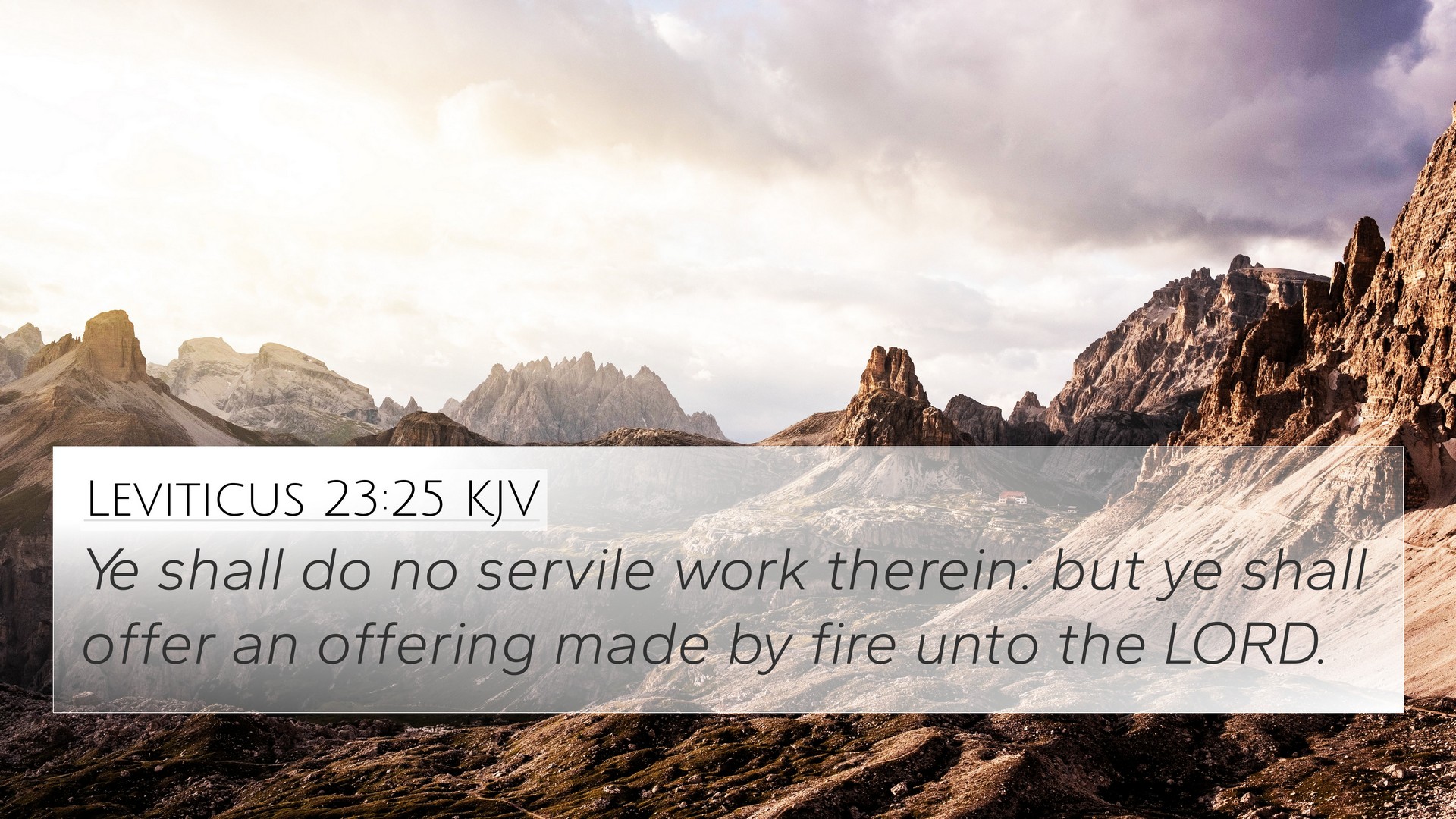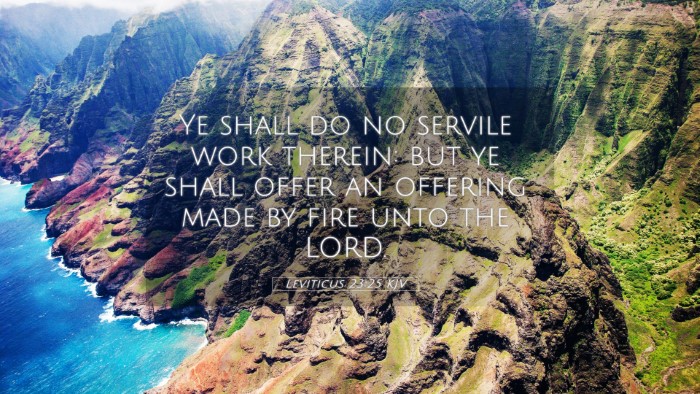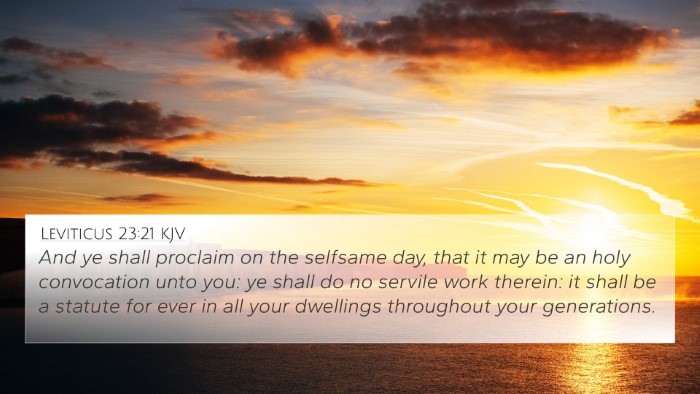Understanding Leviticus 23:25
Leviticus 23:25 states: "You shall celebrate a feast of trumpets on the tenth day of the seventh month; it shall be a holy convocation for you. You shall not do any laborious work, but you shall present an offering by fire to the Lord."
Summary of Leviticus 23:25 Meaning
This verse encapsulates the significance of the Feast of Trumpets, also known as Rosh Hashanah, which marks the beginning of the Jewish civil year. This celebration signifies a call to repentance and the readiness for the Day of Atonement. The trumpet, or shofar, is blown to herald the solemnity of the occasion and to invite the people into a time of reflection and worship.
Commentary Insights
- Matthew Henry: Henry emphasizes the need for a holy convocation, stressing the communal aspect of worship where all are invited to come together in reverence. He notes that this gathering is not just about festivity, but it’s a time for serious self-examination and repentance.
- Albert Barnes: Barnes discusses the purpose of blowing the trumpets, identifying them as a signal for the people to gather and prepare for the upcoming solemnities. He explains that this is more than a festival; it is a divine appointment meant to draw attention to one’s relationship with God.
- Adam Clarke: Clarke views the offering made during this feast as an act of dedication to God, symbolizing the turning of one’s heart towards divine grace. He highlights the importance of not engaging in laborious work, indicating that the day is set apart for spiritual reflection.
Cross-References for Leviticus 23:25
To enhance understanding, Leviticus 23:25 can be cross-referenced with several other biblical texts:
- Numbers 29:1: Discusses the requirements for the Feast of Trumpets.
- Psalm 81:3: Calls for the blowing of the trumpet during new moons and solemn feasts.
- Joel 2:1: A call to sound the trumpet, signaling a day of the Lord and repentance.
- 1 Thessalonians 4:16: References the trumpets as a signal during the return of Christ, connecting the Jewish traditions with New Testament theology.
- Zecharaiah 9:14: Alludes to the Lord using a trumpet in the context of judgment and deliverance.
- Exodus 19:16: Describes the sounding of trumpets at Mount Sinai signifying God's presence.
- Matthew 24:31: Indicates the gathering of the elect with a trumpet call in eschatological context.
- Revelation 8:6: Highlights the significance of trumpets in the unfolding of God’s plans.
- Isaiah 58:1: Encourages making clear the call to repentance, similar to the trumpet’s purpose during these holy days.
- Romans 10:15: Associates the beauty of those who preach good tidings, linking to the themes of proclamation significant in both Old and New Testaments.
Thematic Connections
The themes in Leviticus 23:25 highlight conversations found throughout scripture, emphasizing the importance of communal worship, the call to repentance, and the anticipation of God’s actions in history. These concepts resonate in both Old Testament feasts and New Testament fulfillments.
Conclusion
Leviticus 23:25 serves as a powerful reminder of the importance of taking time to celebrate God's provisions while also understanding the deeper spiritual meanings behind the festivities. The interconnection between different biblical texts provides a rich tapestry for understanding God’s narrative and His invitations to humanity throughout scripture.
Exploring Further
For those interested in deeper study, utilizing tools like Bible concordances and Bible cross-reference guides can enhance understanding. Engaging in cross-reference Bible study methods can reveal intricate links between scripture, illustrating God's ongoing dialogue with His people.



